 Emerging Adults are not the only ones who are leaving the church. According to the authors of Church Refugees, “The phenomenon of people walking away from congregation-based church has much more to do with how our culture has evolved over the years for everyone, not simply for emerging adults.” (76) While the decline in church participation is greatest among Millennials, churches are seeing decline in every generation.
Emerging Adults are not the only ones who are leaving the church. According to the authors of Church Refugees, “The phenomenon of people walking away from congregation-based church has much more to do with how our culture has evolved over the years for everyone, not simply for emerging adults.” (76) While the decline in church participation is greatest among Millennials, churches are seeing decline in every generation.
While I do not hold a negative attitude toward the Millennial Exodus, those who love the church should examine cultural trends, and how God is calling us into a new season of ministry in a rapidly changing world. Unfortunately, the authors’ research was not based upon a broad or diverse sample. The researchers state that the sample was diverse geographically, socioeconomically, generationally, and gender; however, the responders were 92% white. (10)
During their research, the authors coined the expression, “the Dones” to represent the individuals who were once active in church participation, but no longer attend. Some of these individuals may also be classified as a None (who declare no religious faith) while others still hold tightly to faith (and yet are “Done” with the organized church). The dechurched, as they sometimes are referred to are “disproportionately people who were heavily involved in their churches.” (50)
 The book offers solutions about how to begin bringing these church refugees back into churches. The authors share how, “In order to reengage the dechurched, then, our respondents are clear that the church needs to adopt policies and practices that disseminate power, reduce the role of the pastor as the holder and conveyor of all knowledge, and utilize organizational resources to empower people rather than to control them.” (94) These are important topics that need to be discussed within our churches.
The book offers solutions about how to begin bringing these church refugees back into churches. The authors share how, “In order to reengage the dechurched, then, our respondents are clear that the church needs to adopt policies and practices that disseminate power, reduce the role of the pastor as the holder and conveyor of all knowledge, and utilize organizational resources to empower people rather than to control them.” (94) These are important topics that need to be discussed within our churches.
This book contains the “story of what happens when an organization invests in training and discipling scores of people, and yet does very little to retain them or reengage them when they leave.” (11) I discovered within this book a call to action.
The Nones won’t go to church, and they are afraid of church leadership. The church needs to provide healing and help for those who have left wounded (those suffering from PTCD – Post-Traumatic Church Disorder).
A rehabilitation process and program is needed for Christians wounded led by Jesus’ followers who can work outside the organized church and possess gifts of mercy and compassion. If we fail to meet this call, “the church continues to run off faithful followers who are, by their nature or religious conviction, conciliatory, compromising, and nonjudgmental, then we will continue to see a church that’s increasingly insular, alienating, and irrelevant.” (19)
As the church, we should be passionate about reaching the Nones. Instead of cycling through decades of “evangelism tactics” like concerts, outreach events, seeker-sensitive bible studies, or tracts, maybe it is time to look around us and backward in time towards those we have hurt and have left  behind. I completely agree with their statement that “the Dones and the almost Dones are the strongest bridge to the Nones.” (137)
behind. I completely agree with their statement that “the Dones and the almost Dones are the strongest bridge to the Nones.” (137)
Dr. G. David Boyd is the Founder and Managing Director of EA Resources, a non-profit designed to help parents and parents understand emerging adulthood.








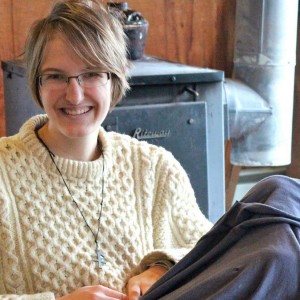
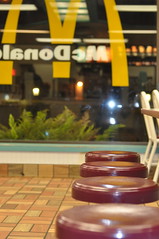
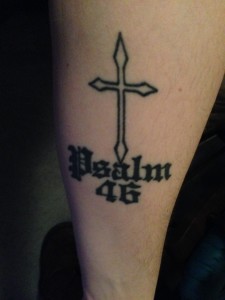 He had asked his son to refrain from tattoos until he was twenty-one. The father’s reasoning included the under-developed brain of emerging adults,
He had asked his son to refrain from tattoos until he was twenty-one. The father’s reasoning included the under-developed brain of emerging adults,  Another day in the life of a
Another day in the life of a 

 Do you know what the hell you’re doing? Because we’re coming clean and admitting that often times we don’t.
Do you know what the hell you’re doing? Because we’re coming clean and admitting that often times we don’t.
 Mark Whitt writes about why the Collegiate Day of Prayer matters to your college ministry. He is the Collegiate and Young Adult Specialist at LifeWay Christian Resources. Before joining LifeWay, he spent many years on the campus of Murray State University as a campus minister.
Mark Whitt writes about why the Collegiate Day of Prayer matters to your college ministry. He is the Collegiate and Young Adult Specialist at LifeWay Christian Resources. Before joining LifeWay, he spent many years on the campus of Murray State University as a campus minister.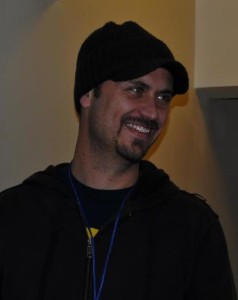

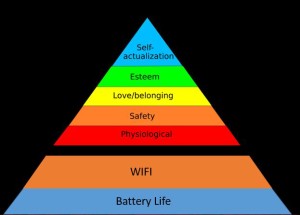
 So it happened. You thought you’d be on your own by now, but you’re not. Whether you’re trying to land a steady job, get out of debt, or finish college on the eight-year plan, if you’re living with your parents as a 20-something, you’re not alone. More than a third of 18 to 31 year olds are living with their parents, according to the Current Population Survey.
So it happened. You thought you’d be on your own by now, but you’re not. Whether you’re trying to land a steady job, get out of debt, or finish college on the eight-year plan, if you’re living with your parents as a 20-something, you’re not alone. More than a third of 18 to 31 year olds are living with their parents, according to the Current Population Survey.  Over the past few years, the percentage of 25-to-34-year-old Americans living with their parents has been at a
Over the past few years, the percentage of 25-to-34-year-old Americans living with their parents has been at a